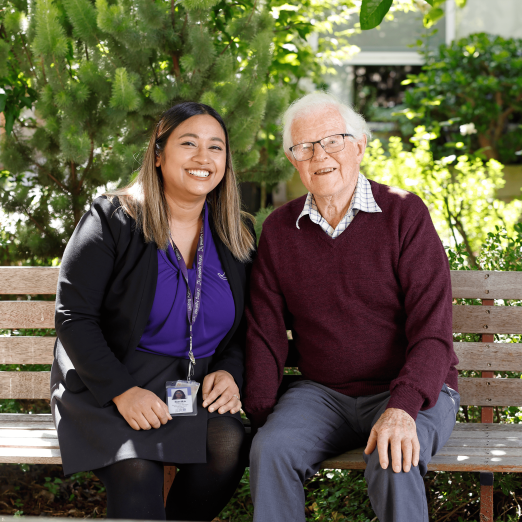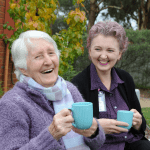News
A love story like no other
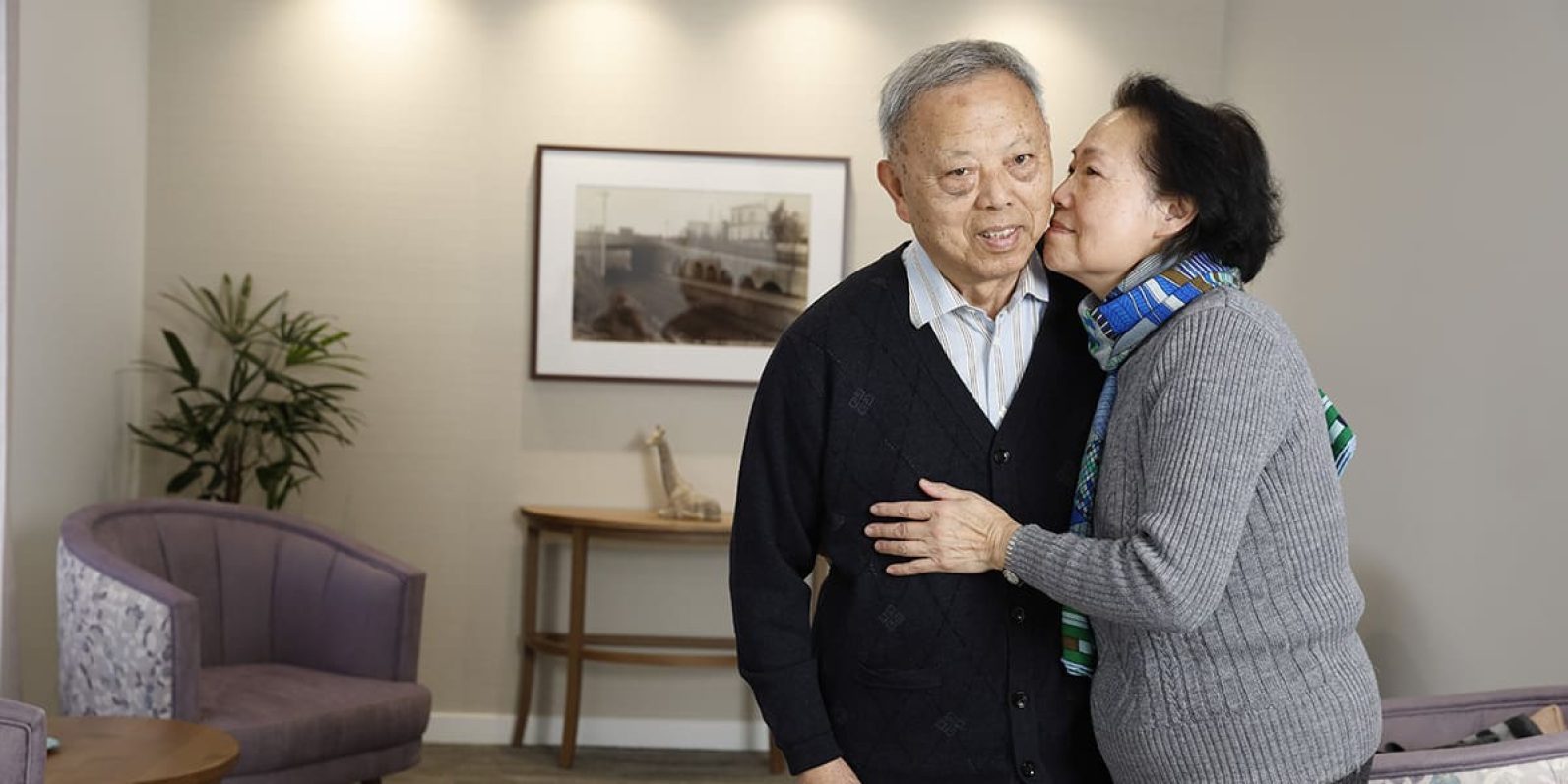
Residential Care
Love conquers all – just ask Qin Qing and his wife En Pei.
They fought seemingly insurmountable odds, including a four year battle against the Chinese Communist Government, to be together. And now, decades later, they still cherish each day they spend with each other.
So where did this epic love story of sacrifice and separation between 78-year-old Qin, a resident at Uniting AgeWell Hawthorn Community and 76-year-old En Pei, who lives in Toorak, start?
They met through music. And they were ultimately reunited through music. And their legacy lives on, echoed in the chords of the hauntingly beautiful music of their world-famous cellist son.
Falling in love
It started off as a simple boy meets girl romance. Cellist Qin Qing and pianist En Pei were both students at the prestigious music boarding school belonging to the Shanghai Conservatory of Music. He started at the school when he was 11, she was 13, and they were good friends before love bloomed.
They had a simple wedding. They rode to a restaurant on their bicycles, which was easy to do as En Pei didn’t have a wedding dress. There was nowhere to buy one, and she knew people would be critical as it would be considered an unnecessary luxury.
Their reception consisted of four tables of guests, with the government setting strict limits on how much each table could spend.
But, love – much like music – doesn’t need expensive trappings, and their wedding day was a joyous occasion.
Hard years
The times ahead were tough. In 1956, life in China was difficult on all fronts, including culturally and politically.
“For two years, they stopped us studying any Western music,” En Pei explains. “We weren’t allowed to touch it.”
The couple kept playing what they were allowed to, and in the meantime welcomed their beautiful baby boy, Li-Wei Qin, into the world.
In 1985 when their son was nine, En Pei came to Australia as a visitor with the Shanghai Conservatory of Music on a one-year contract to lecture in Tasmania.
The lucky country
From the get-go, En Pei couldn’t believe how free Australia was. And the glorious freedom people had to play the music they wanted to.
“I wanted my son to grow up here,” she says simply.
Her enthusiasm for Australia was infectious, and Qin Qing suggested she stay and do her Master’s Degree while they applied for a tourist visa to join her.
The plan was simple, so they thought. All she had to do was to apply for a skilled migrant visa from the Australian Government. Which she got.
But they hadn’t factored the iron will of the Chinese Government into the equation.
The struggle
The Chinese Government got wind of her plans, and before En Pei knew what was happening, they had sent an official from Canberra to her home to demand she return to Shanghai at once. And that proof be sent to them of her air ticket to return home.
When they didn’t get it, they confiscated her husband’s and son’s visas.
“They tried many times to reapply for tourist visas to visit Australia, and were declined,” says En Pei. “They were trapped in Shanghai.”
A difficult decision
En Pei is unable to hold back her tears. “I had to make the most difficult decision of my life to stay on in Australia. I was also afraid of what the Government might do to me if I returned home to Shanghai.”
En Pei yearned to be with her husband and her son and had no idea how many years would pass before they could be reunited. Her heart ached as four long years went by, and she missed seeing her son grow and develop.
She learned anew that hugs say what phone calls and letters can’t. “This was the worst and most difficult time of my life,” En Pei says simply.
A good circle of friends and music became her sources of strength. She found solace in the sweet symphonies of Beethoven and Chopin. And all the while she hoped … and hoped.
Continuing the legacy
Even though they were on opposite sides of the world, music continued to be the life force that sustained all three.
Back in Shanghai, young Li-Wei Qin was being raised single-handedly by Qin Qing, who was now Principal Cellist in the Shanghai Symphony Orchestra.
Li-Wei Qin was inspired by his dad to learn to play the cello, and from an early age his extraordinary talent shone through.
Meanwhile En Pei was employed as a musician in the Tasmanian Symphony Orchestra and later moved to Melbourne to work in the University of Melbourne musical faculty.
In 1989, Australia opened the door for Chinese citizens to come and study English. And En Pei saw it as an opportunity to get her then 13-year-old son to Australia. He applied to the Chinese Government for a study visa and it was granted.
“I think it was granted by mistake though,” says En Pei. “But we were just so incredibly grateful!”
Mother and son
Four long, emotional and draining years later, En Pei and her beloved son were finally together again.
En Pei recalls the emotional reunion that only a mother who has been separated from her child can truly understand. Her tears convey the raw emotions that words can’t.
Lei-Wei Qin was over the moon to be back with his mother and loved Australia – but missed his father terribly.
Qing explains how the Chinese Cultural Minister in Australia wrote to the Chinese Government to ask for permission for him to come. They said he needed two letters of support – one from the Conservatory of Music and one from the Symphony Orchestra. He got both, and was granted a visa.
Together at last
After so many years apart, the family was finally reunited. And they made the most of every day that had been lost. Qin Qing landed a casual role in the Melbourne Symphony Orchestra. And the family proudly became Australian citizens, cementing their life of freedom for once and for all. They used the opportunity to travel to Europe and America and explore the world and all it has to offer.
Meanwhile Lei-Win Qin’s talent was soon recognised and he was awarded a full scholarship at Melbourne Grammar School.
He’s now a famous cellist, with a swag of musical awards – including Young Australian of the Year and his own wiki page under his belt. Just check out his awards here.
He’s played on stages across the world, and performed with the New Zealand Symphony Orchestra in the 2008 Beijing Olympics, at the 2012 London Olympics and with the Basel Symphony Orchestra at the Davos World Economics Foruom
He was nominated for the 2010 ARIA Award for Best Classical Album for the album Beethoven Cello Sonatas. The album was a duo with Filipino pianist Albert Tiu. And over the years, En Pei and Qing have travelled far and wide to watch their son’s concerts.
Lei-Win Qin’s currently works as a professor at Singapore University. And he often tours with the Melbourne Symphony Orchestra as a soloist, which gives him plenty of opportunities to spend time with his beloved parents.
After 11 years in Australia, he did a concert back in Shanghai. The wheel had turned full circle.
Spending time together
En Pei has retired from the University of Melbourne, but still teaches piano privately. She and Qin Qing enjoy listening to music live-streamed from the TSO. It brings back memories for En Pei of her years playing for the orchestra.
And both En Pei and Qin Qing can’t speak highly enough of Hawthorn Community.
“It’s the best place for him to be, with his aggressive diagnosis.” Says En Pei. “The staff are kind to him, they are so patient. I am much more relaxed now that he’s in good care.”
Recent content
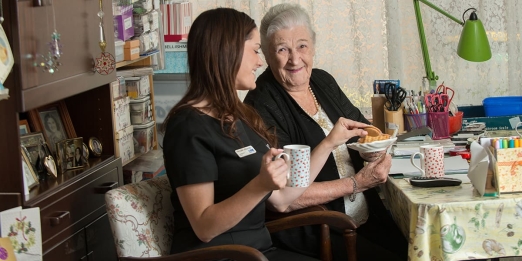
Providing care to regional seniors
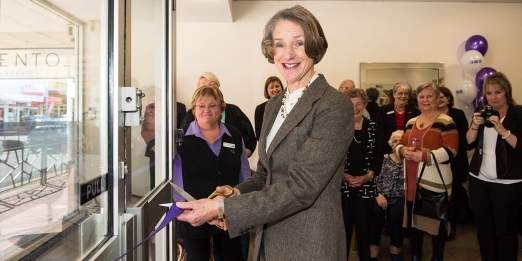
UA opens its first Community Hub
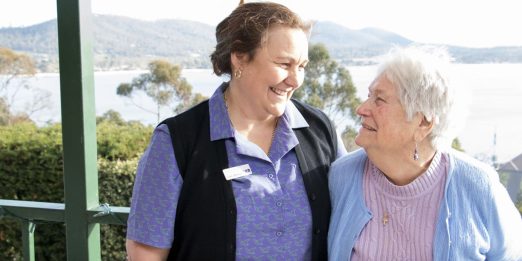
UA finalist in Tasmanian community awards
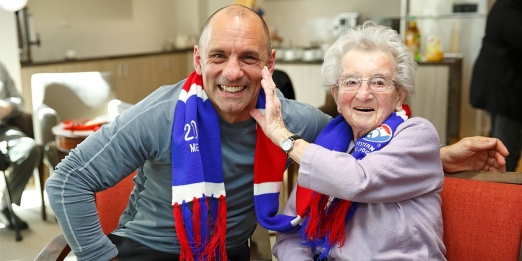
AFL legend Tony Liberatore visits Amarco

Help halt Federal Government cuts to aged care

Agewell Sunday Worship Resource
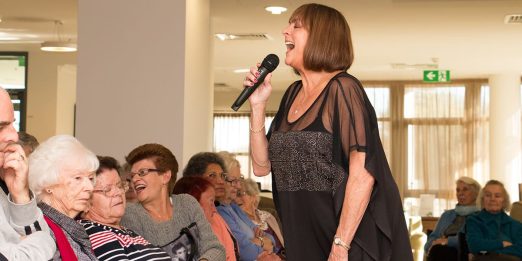
Denise Drysdale a smash hit at Amarco

A glimpse into Manor Lakes
